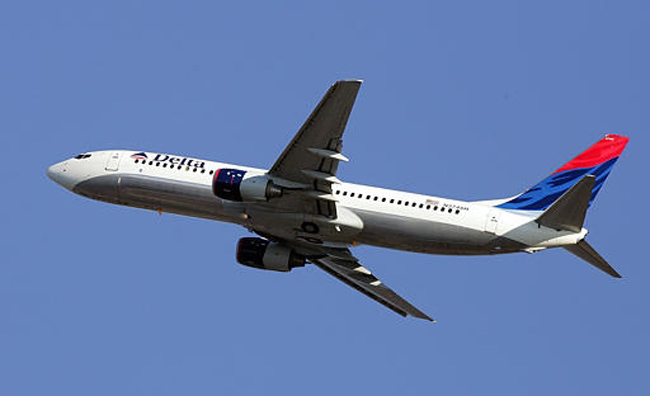Airport Security: Why It Failed

Get the world’s most fascinating discoveries delivered straight to your inbox.
You are now subscribed
Your newsletter sign-up was successful
Want to add more newsletters?

Delivered Daily
Daily Newsletter
Sign up for the latest discoveries, groundbreaking research and fascinating breakthroughs that impact you and the wider world direct to your inbox.

Once a week
Life's Little Mysteries
Feed your curiosity with an exclusive mystery every week, solved with science and delivered direct to your inbox before it's seen anywhere else.

Once a week
How It Works
Sign up to our free science & technology newsletter for your weekly fix of fascinating articles, quick quizzes, amazing images, and more

Delivered daily
Space.com Newsletter
Breaking space news, the latest updates on rocket launches, skywatching events and more!

Once a month
Watch This Space
Sign up to our monthly entertainment newsletter to keep up with all our coverage of the latest sci-fi and space movies, tv shows, games and books.

Once a week
Night Sky This Week
Discover this week's must-see night sky events, moon phases, and stunning astrophotos. Sign up for our skywatching newsletter and explore the universe with us!
Join the club
Get full access to premium articles, exclusive features and a growing list of member rewards.
Airport screening procedures failed for many reasons to catch the Nigerian man who aimed to blow up flight 253 as it approached Detroit. Scanners that might have spotted the explosives are not fully deployed, and even at airports where they exist, the scanners aren't used on all passengers.
Bottom line: No system will likely prove foolproof, experts say.
Investigators say 23-year-old Nigerian Umar Farouk Abdul Mutallab hid an explosive device and the chemical explosive PETN on his body while traveling from Amsterdam to Detroit aboard the Delta flight on Christmas day.
Secretary of Homeland Security Janet Napolitano admitted the security system didn't suffice.
"Our system did not work in this instance," Napolitano told NBC’s "Today" on Monday. "No one is happy or satisfied with that. An extensive review is under way."
Well-known explosive
PETN is a white powder that resembles a less-shiny version of sugar and is used by the military and commercial mining outfits.
Get the world’s most fascinating discoveries delivered straight to your inbox.
"So anywhere people are allowed to handle explosives, it's there, and it's usually there in quite a bit of abundance because it's present in detonating cords and sheet explosives," said Jimmie Oxley, an explosives expert at the University of Rhode Island.
PETN was widely used in terrorist plots in the 1970s and 1980s, and as a result was among the first detectable explosives when tests were developed. PETN can be easily detected with today's airport screening technology, but it usually requires that a passenger or their luggage be singled out for screening, Oxley said.
According to investigators, Mutallab was not screened for explosives in Amsterdam.
Experts have also speculated that a new full-body screening method employing millimeter waves, or MMW, could have also detected the explosives, or at least the packaging affixed to Mutallab's body.
But unlike currently employed screening machines, which can identify banned chemicals directly, MMW scanners are only "anomaly detectors," said Oxley, who is a co-author of the book "Aspects of Explosive Detection."
MMW scanners can see through clothing to reveal metallic and non-metallic objects or other suspicious things on a passenger's body, but they cannot identify explosives by their chemical signatures.
Nothing is foolproof
Another weakness of MMW scanners is they cannot see inside a person’s body, so a determined terrorist could conceivably hide explosives inside their body cavities.
"I doubt there’s any foolproof [screening] method that we can instigate," Oxley told LiveScience.
Early this year, the Transportation Security Administration (TSA) began implementing MMW as a primary screening technology next to metal detectors at airports in San Francisco, Miami, Albuquerque, Tulsa, Salt Lake City and Las Vegas.
Airports in 20 U.S. cities, such as JFK in New York City and LAX in Los Angeles, have used or plan to use MMW tech this year. Other countries have also begun using or evaluating MMW for airport screening, including the UK, Netherlands, Japan and Thailand.
Not every passenger is put through the new scanners, however. And some privacy advocates have complained that the technology is too invasive. TSA has said that it will blur the facial features of passengers going through MMW scanners and that the scans will not be saved.
Meanwhile, passengers can expect longer delays at airports as additional security measures are employed in response to the recent bombing attempt, Department of Homeland Security’s Napolitano said in a statement over the weekend.
"These measures are designed to be unpredictable, so passengers should not expect to see the same thing everywhere," she said. "Due to the busy holiday travel season, both domestic and international travelers should allot extra time for check-in."
 Live Science Plus
Live Science Plus











